Easy Word Problems Worksheets for Ages 3-5
40 filtered results
-
From - To
Introducing our Easy Word Problems worksheets, the perfect learning homework sheets for young minds aged 3-5 years! Designed to inspire and engage, these worksheets make learning fun and accessible. Each sheet is filled with colorful illustrations and simple word problems that help children develop early math skills, such as addition and subtraction, through playful scenarios. The worksheets encourage critical thinking and problem-solving in a way that young learners can easily grasp. Ideal for both classroom and home use, these sheets support your child's educational journey, making learning a delightful experience. Equip your little ones with the tools for success with our Easy Word Problems worksheets!
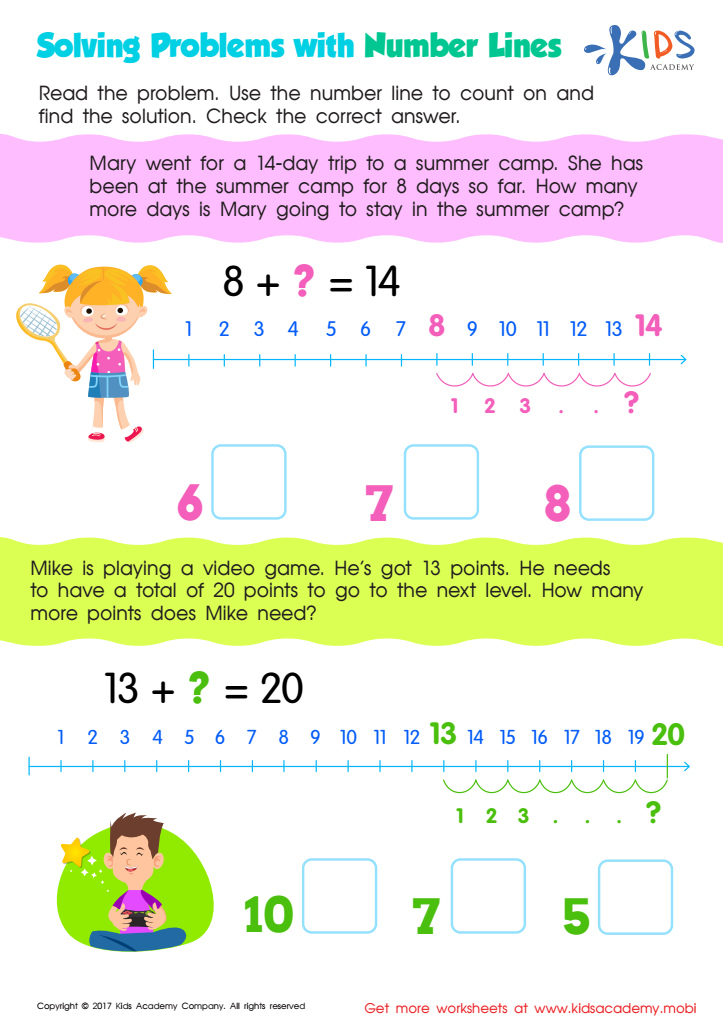

Solving Problems: Number Lines Worksheet
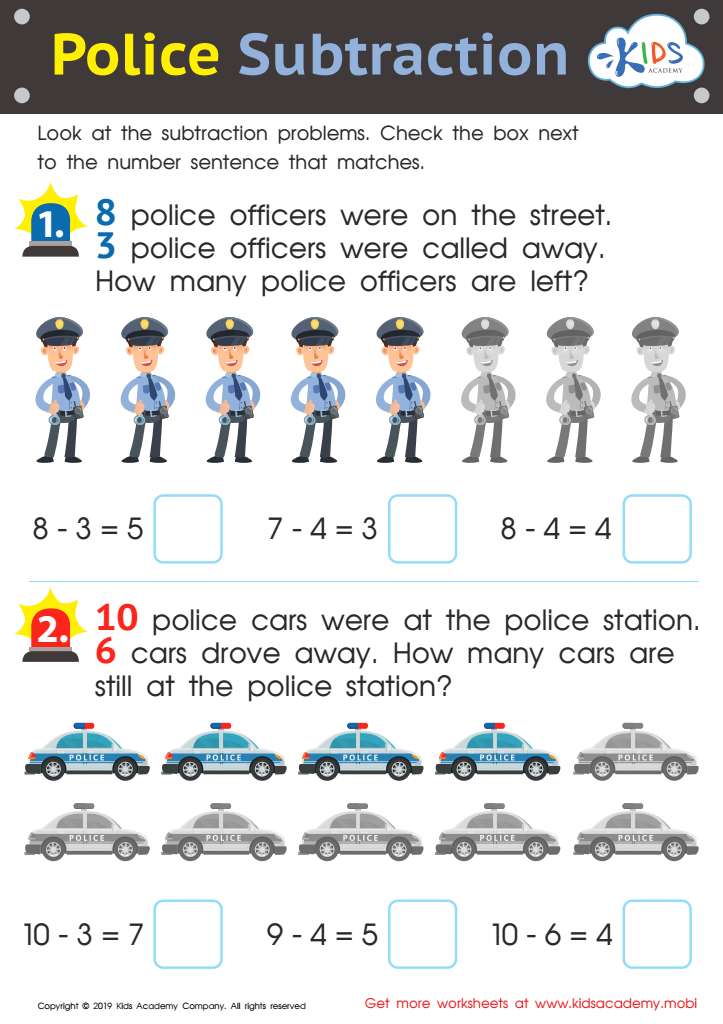

Police Subtraction Worksheet
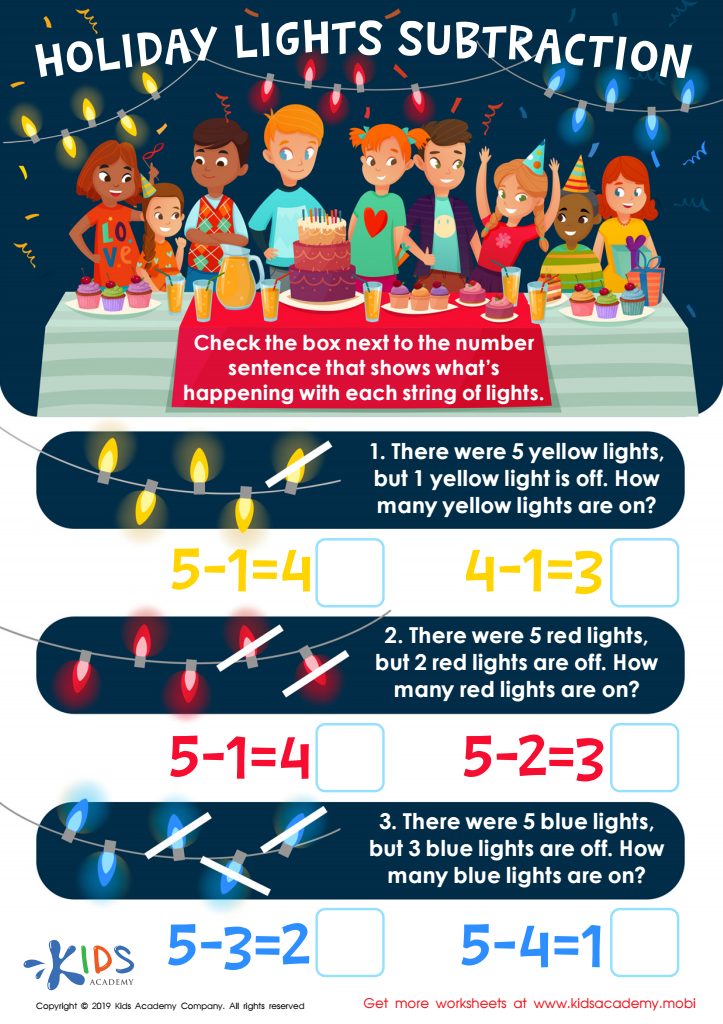

Holiday Lights Subtraction Worksheet
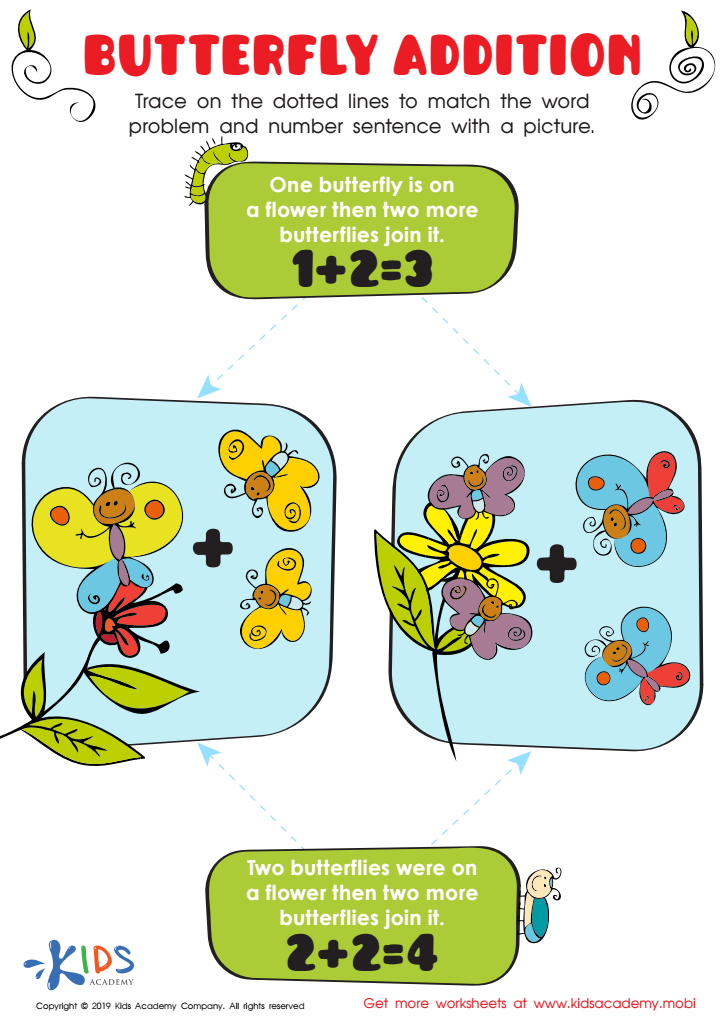

Butterfly Addition Worksheet
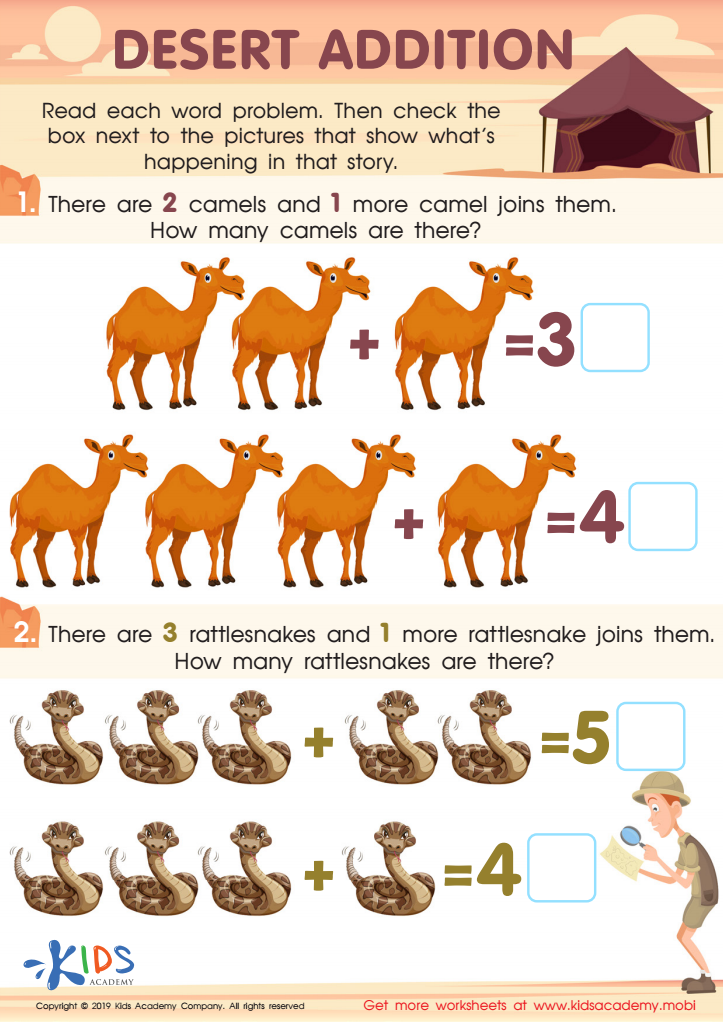

Desert Addition Worksheet
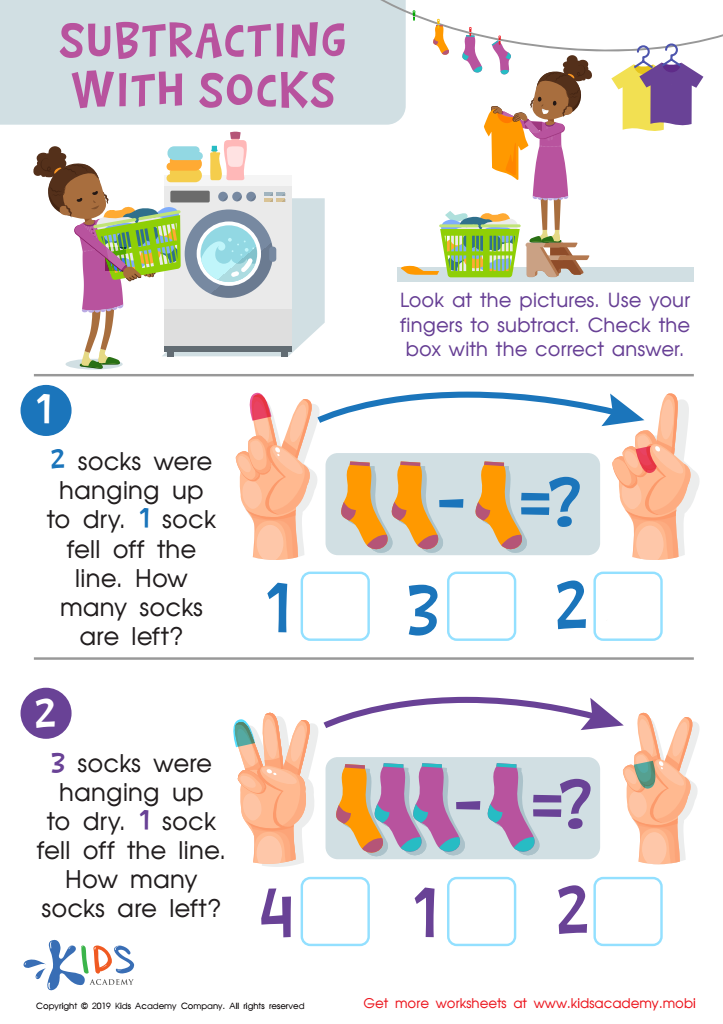

Subtracting Socks Worksheet
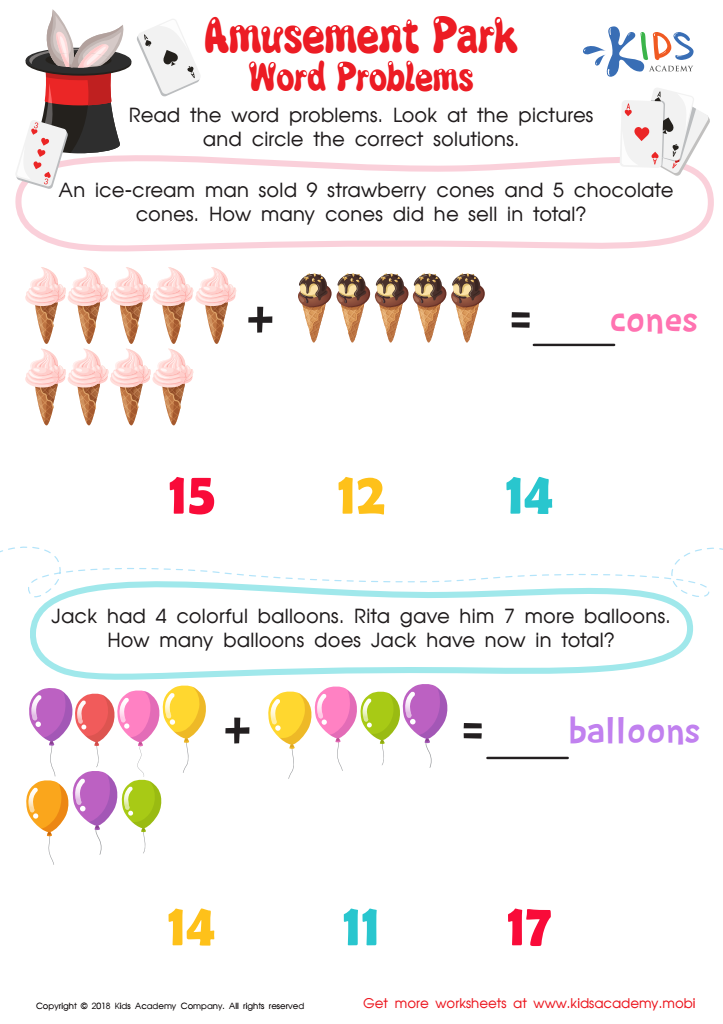

Amusement Park Word Problems Worksheet
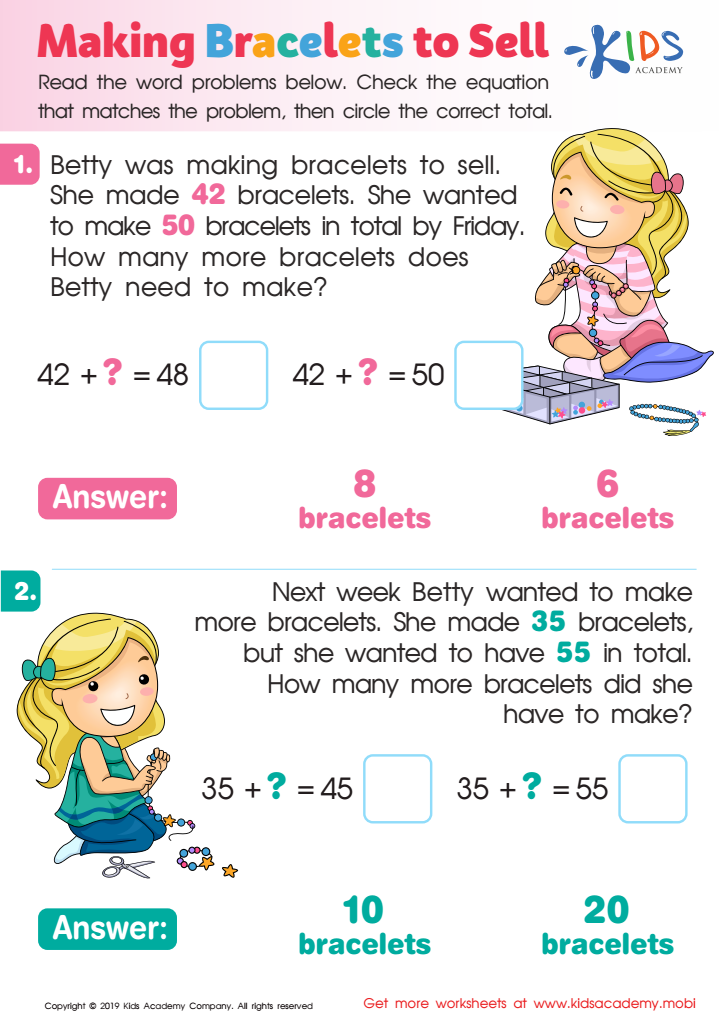

Making Bracelets to Sell Worksheet


Counting Seedlings Worksheet
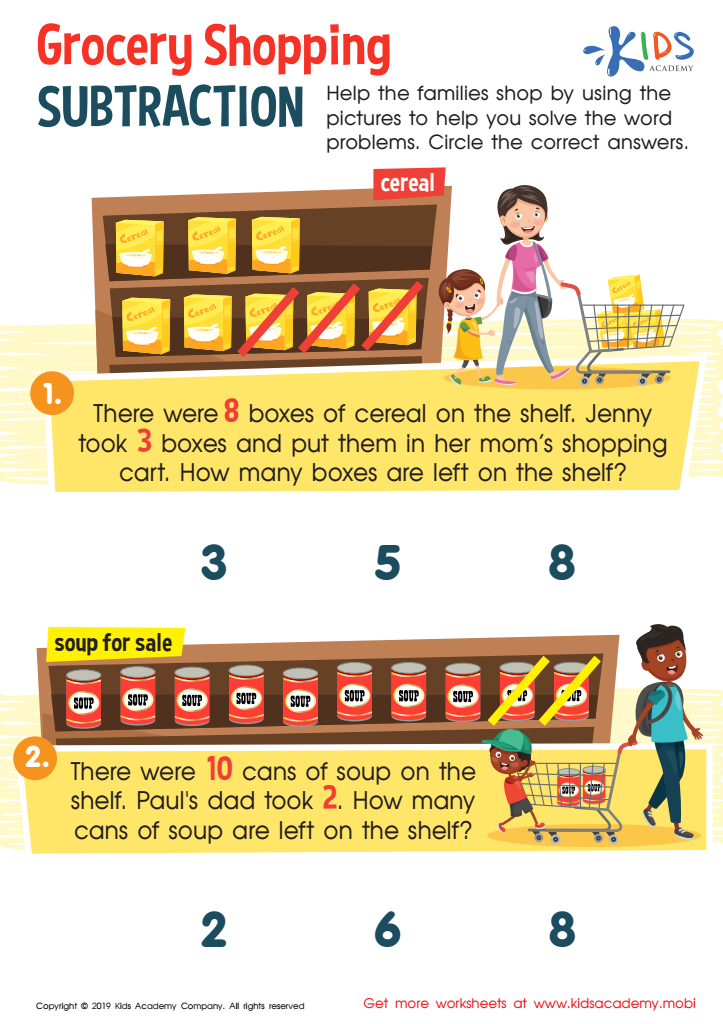

Grocery Shopping Subtraction Worksheet
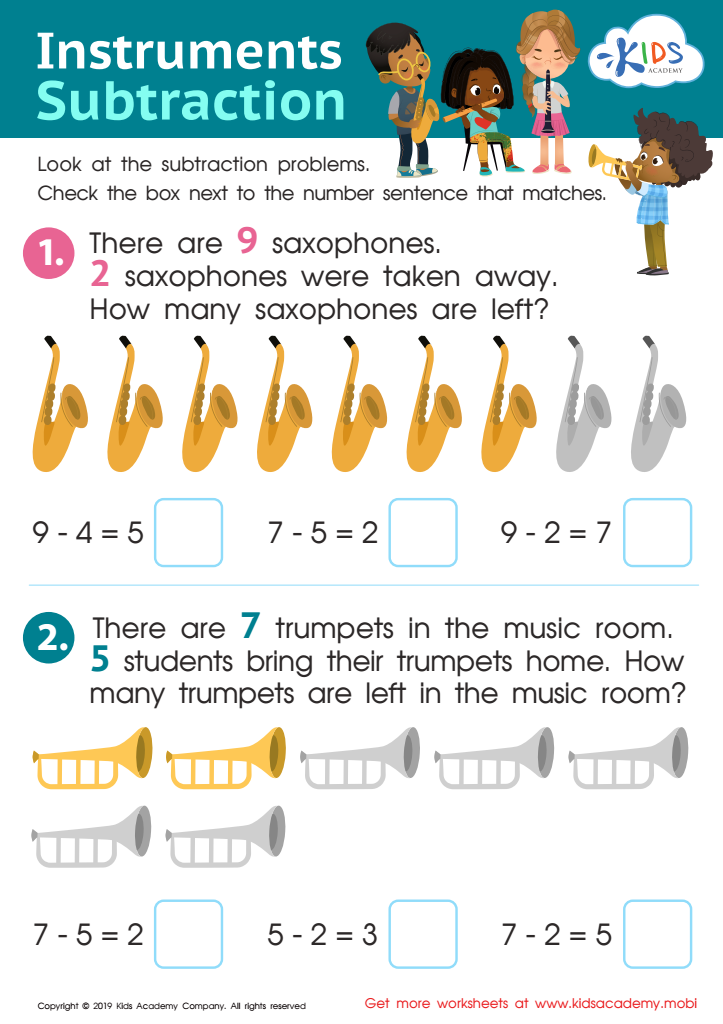

Instrument Subtraction Worksheet
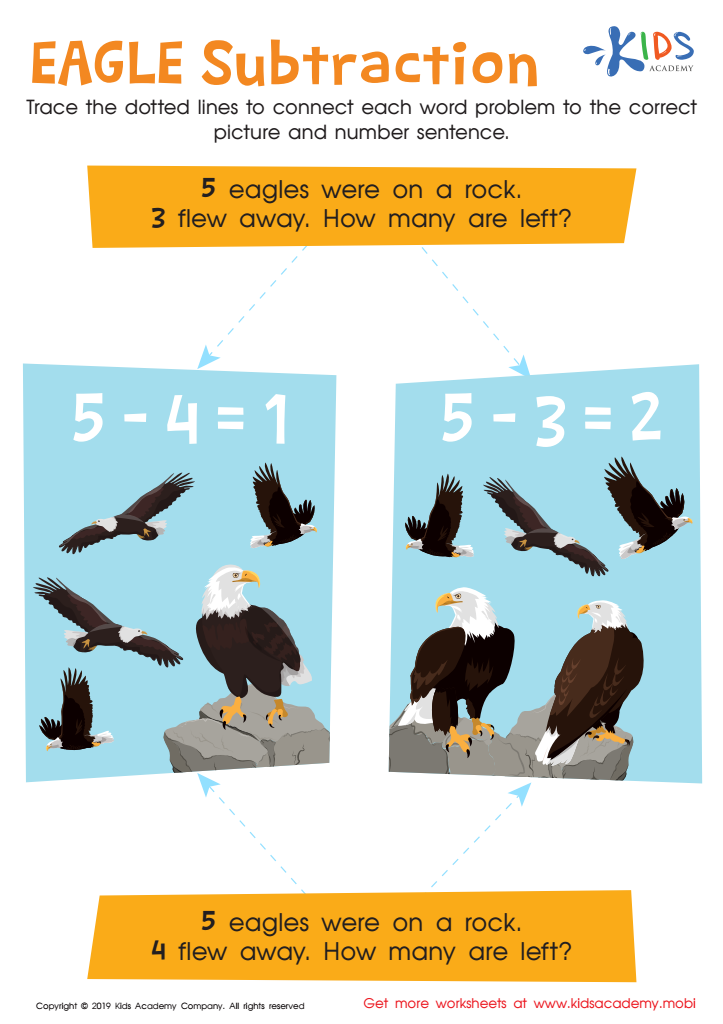

Eagle Subtraction Worksheet
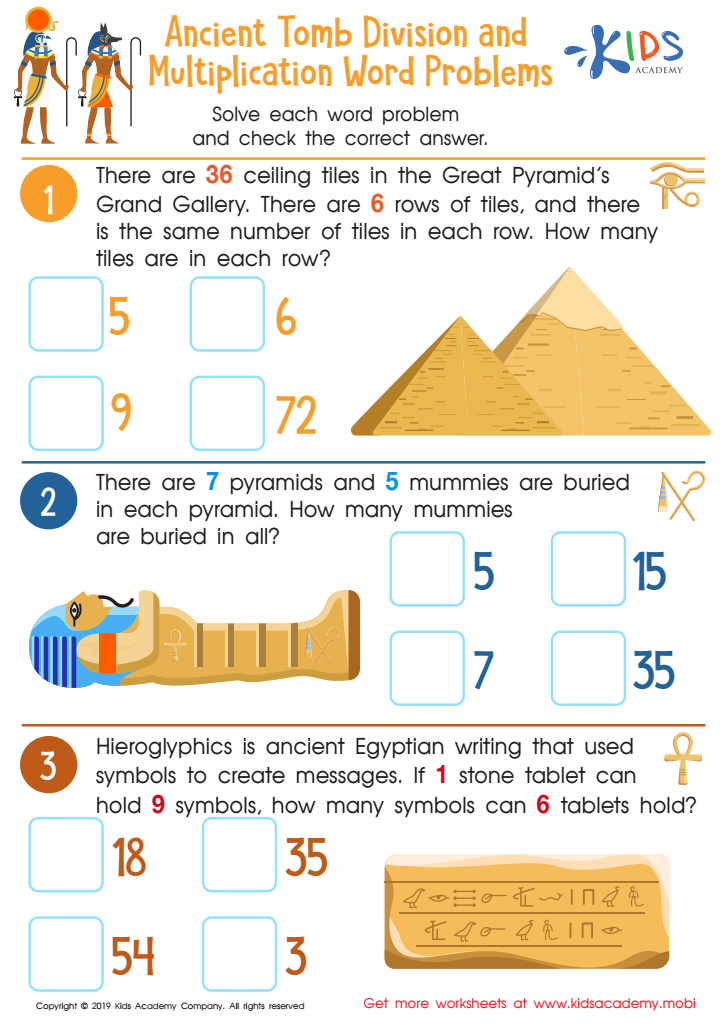

Ancient Tomb Division and Multiplication Word Problems Worksheet
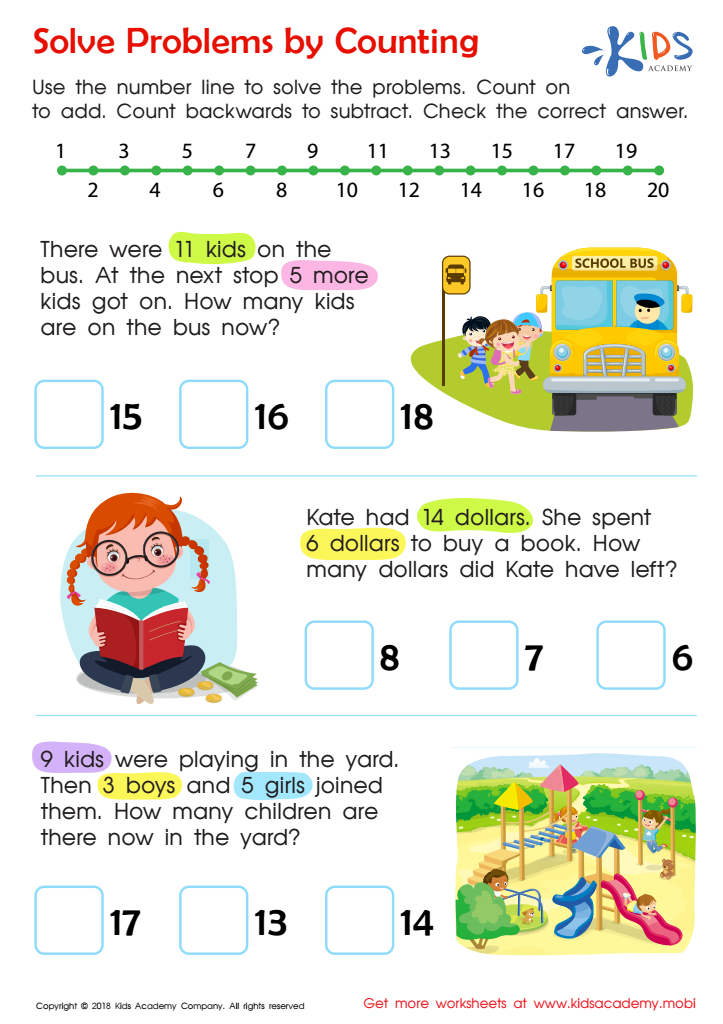

Solve Problems by Counting Worksheet
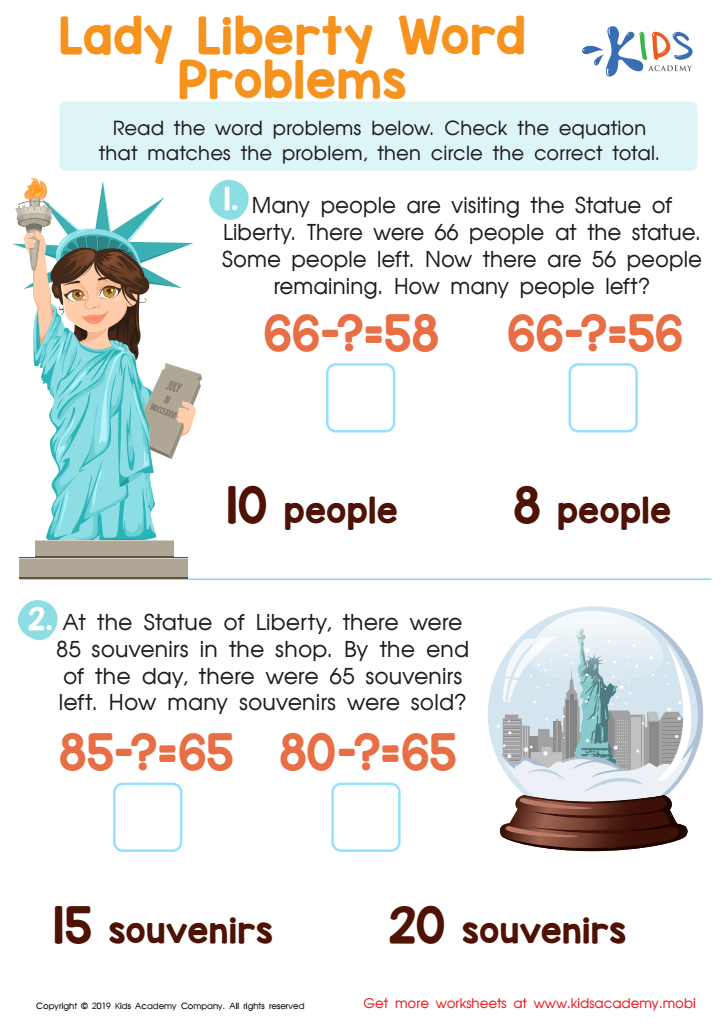

Lady Liberty Worksheet
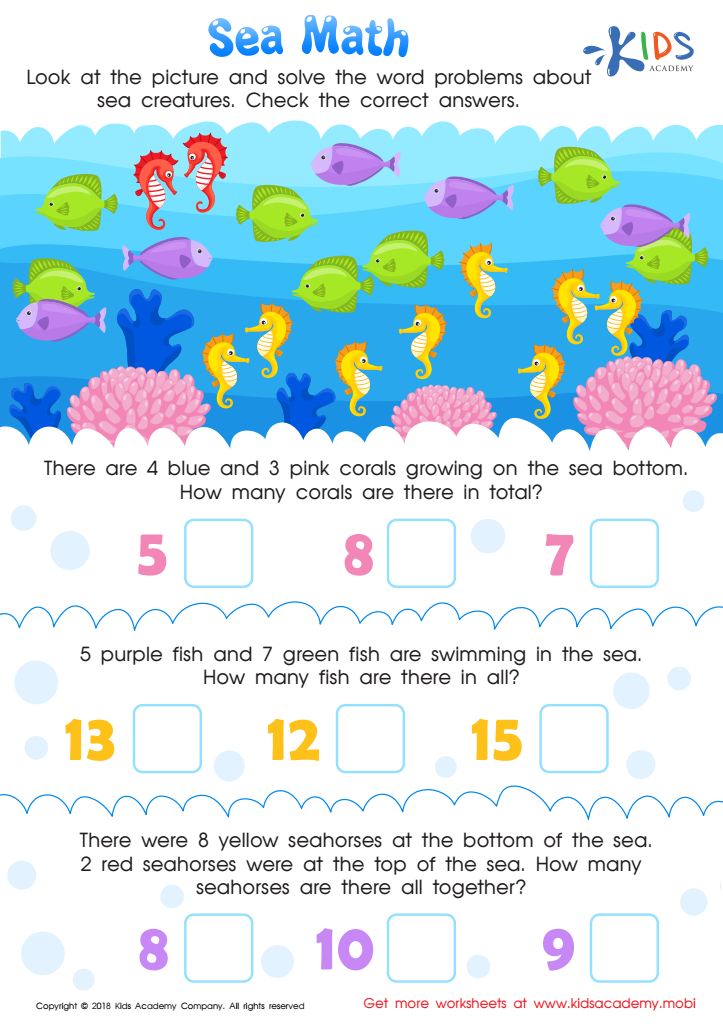

Sea Math Worksheet
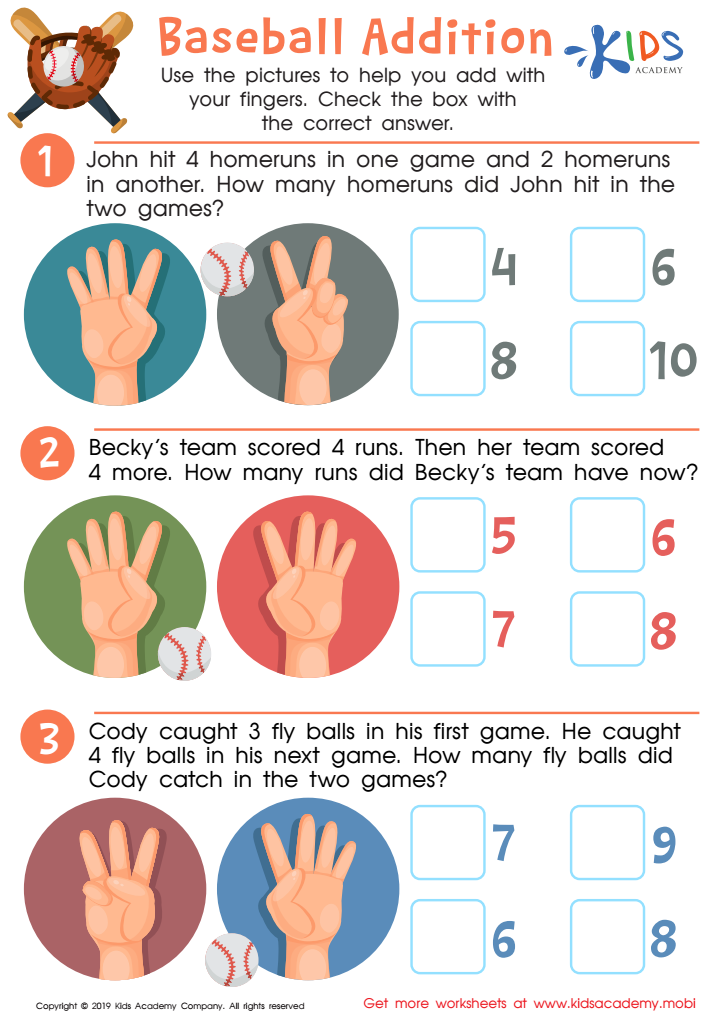

Baseball Addition Worksheet
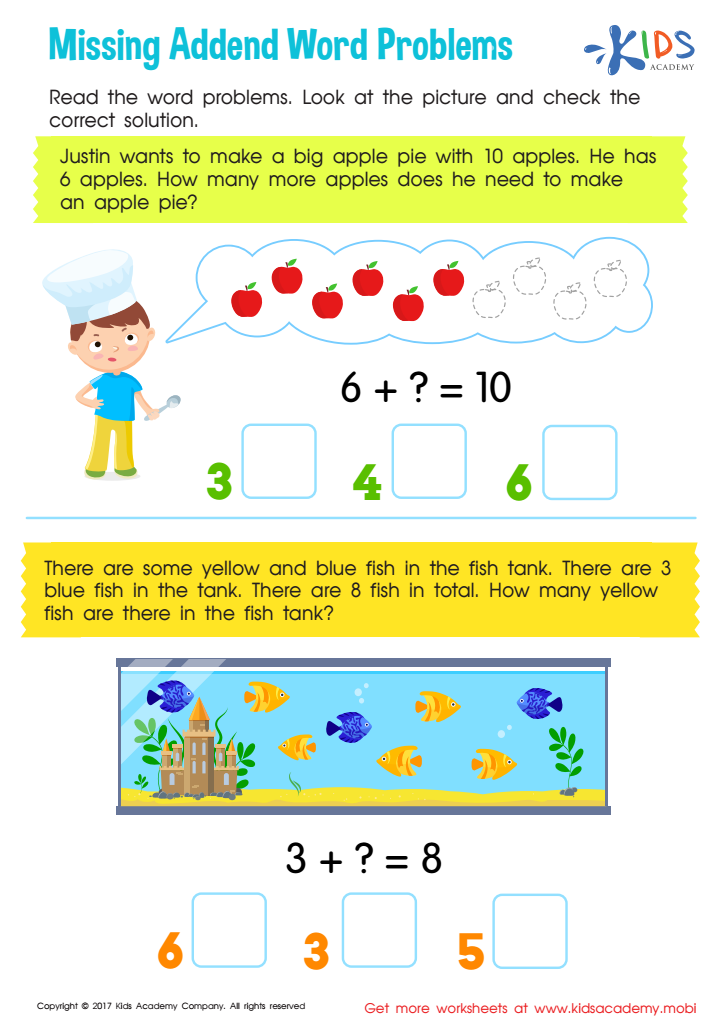

Missing Addend Word Problems Worksheet
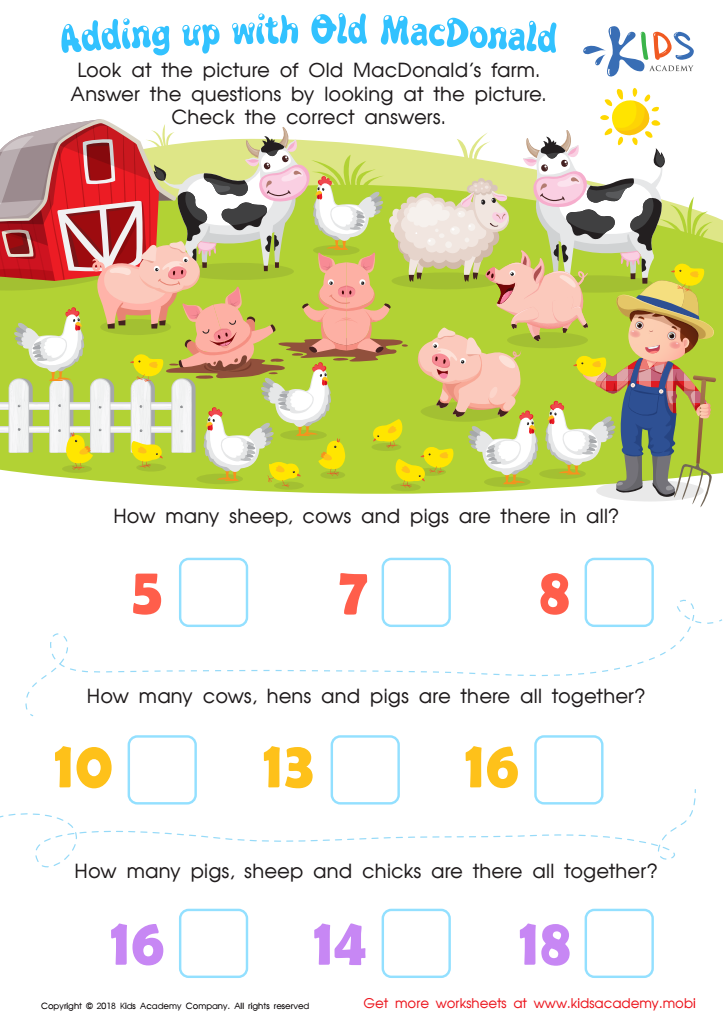

Adding Up with Old MacDonald Worksheet
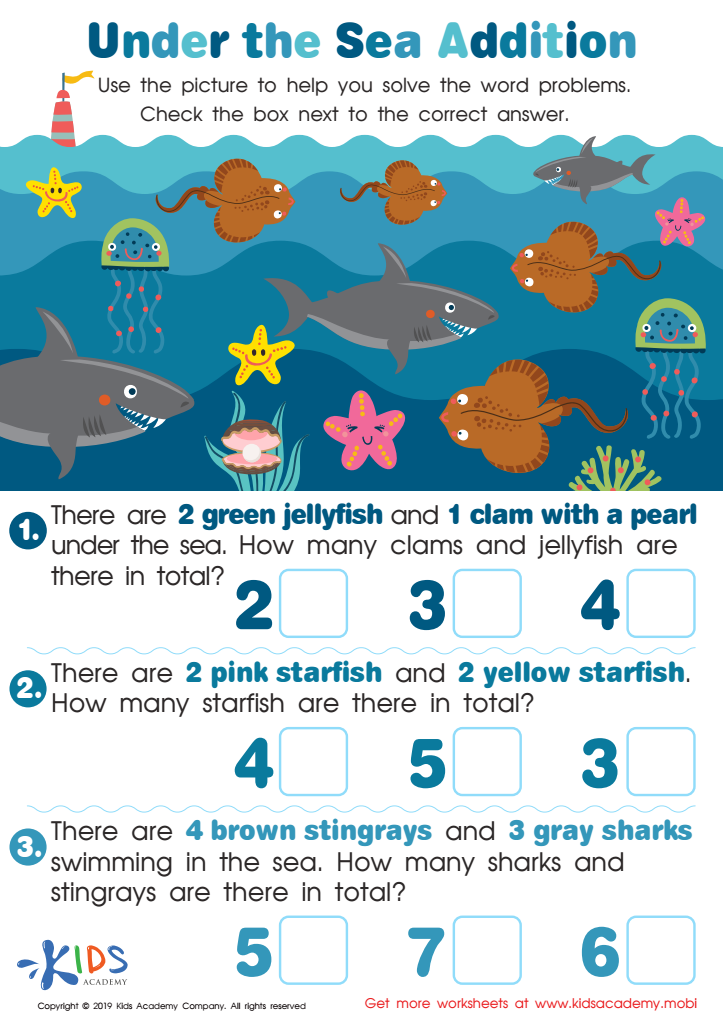

Under the Sea Addition Worksheet
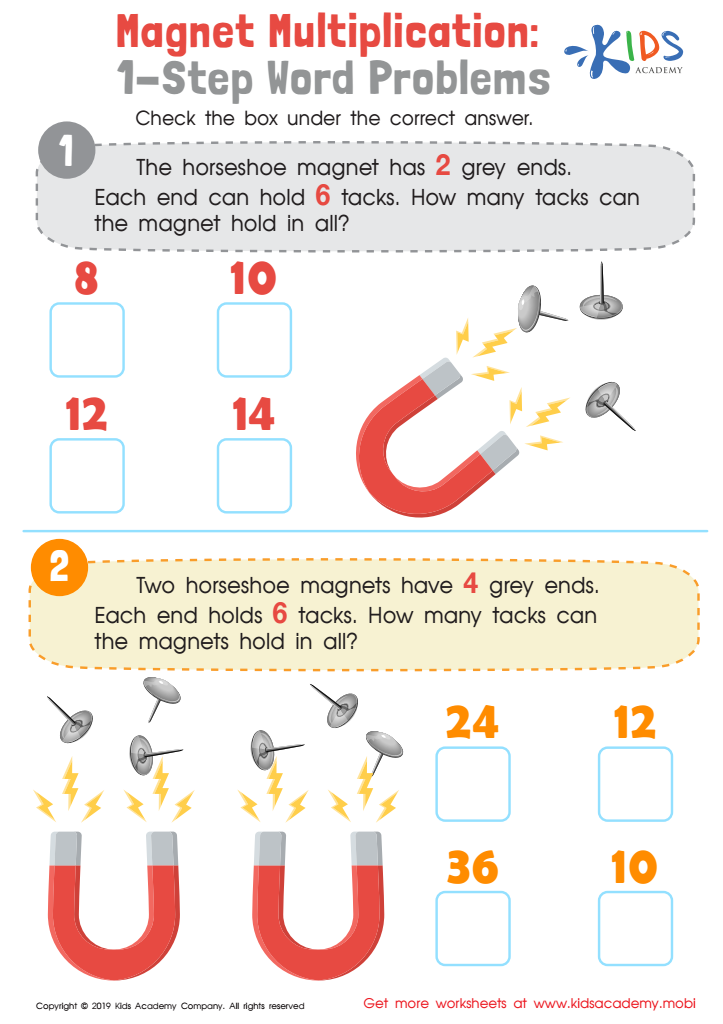

Magnet Multiplication: 1-Step Word Problems Worksheet
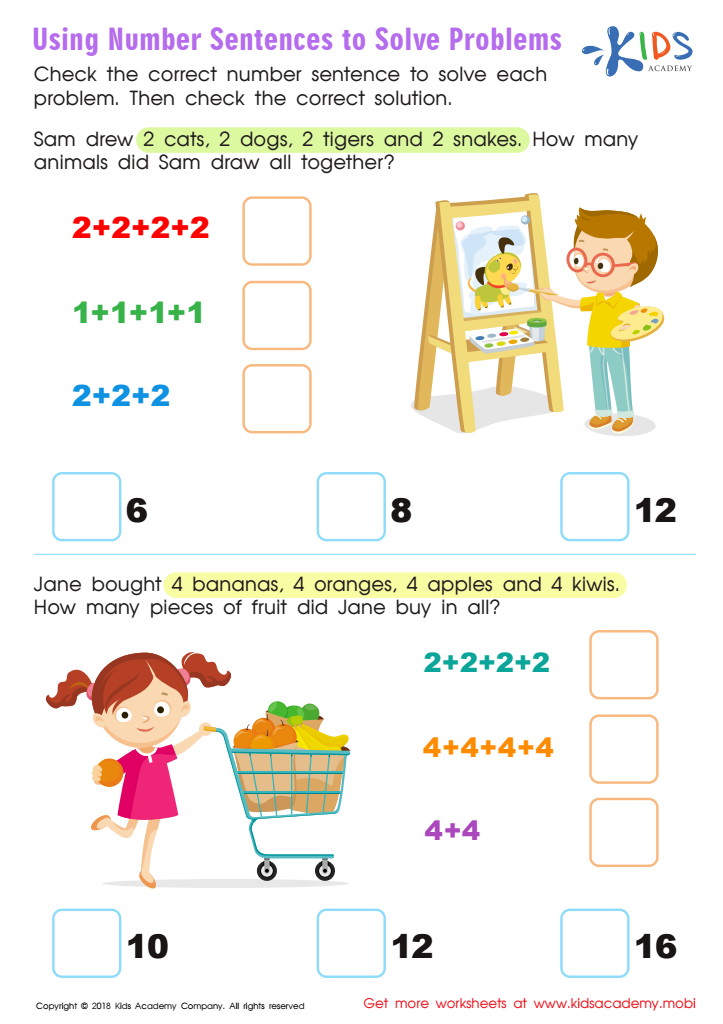

Using Number Sentences to Solve Problems Worksheet
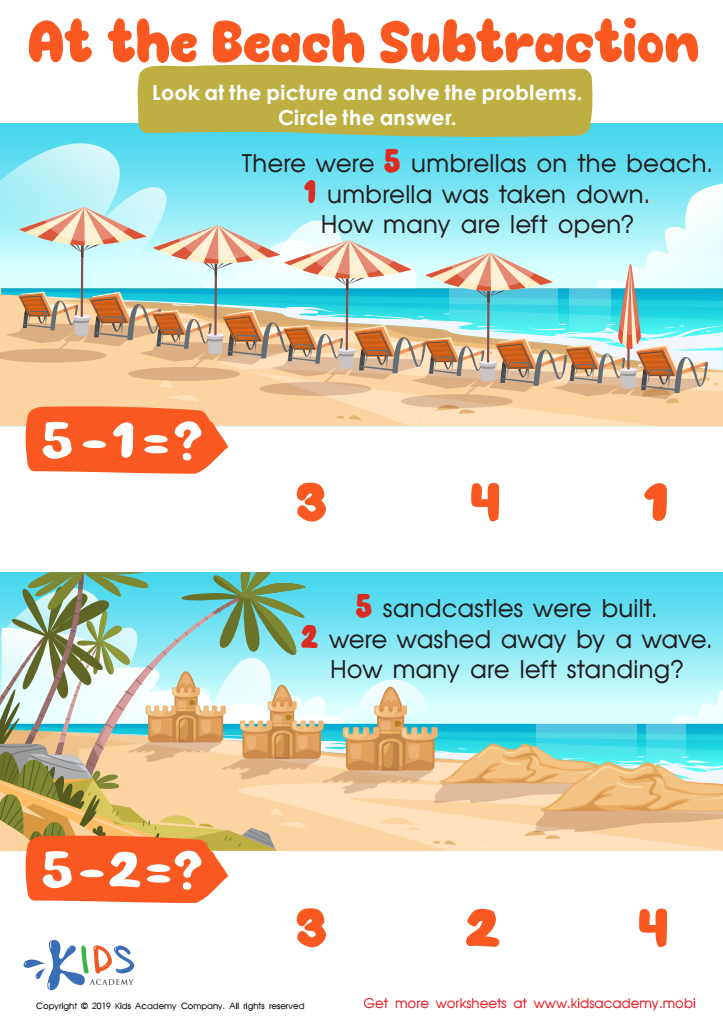

At the Beach Subtraction Worksheet
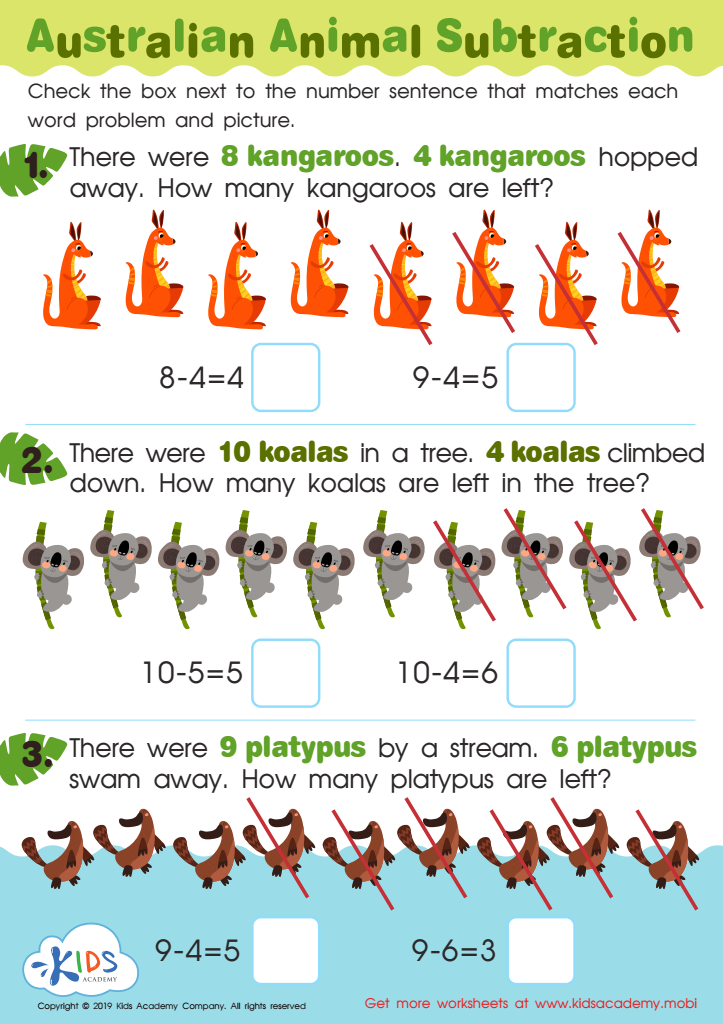

Australian Animal Subtraction Worksheet
Easy worksheets on Word Problems are a fantastic educational tool, especially designed for young learners aged 3-5 years. These educational worksheets are meticulously crafted to introduce basic problem-solving skills through simple, engaging, and age-appropriate challenges, which are crucial in laying a strong foundation for future academic and life skills.
Word problems are not merely about numbers; they integrate language with math, encouraging children to read, comprehend, and identify the necessary steps to arrive at a solution. This blend of literacy and numeracy helps young children develop critical thinking skills and logical reasoning. For preschoolers, whose cognitive abilities are just beginning to bloom, easy worksheets on word problems provide a gentle introduction to the world of math in a narrative format that they find relatable and easy to understand.
At the age of 3-5 years, children are at a crucial developmental stage. Their brains are incredibly receptive and capable of learning much more than we often give them credit for. However, the learning materials need to be aligned with their developmental stage. This is where educational worksheets tailored to their needs become invaluable. These worksheets are designed with simple, clear language and colorful, engaging illustrations that help maintain young children's concentration and interest. By solving these problems, preschoolers learn to connect math concepts to everyday situations, making learning both meaningful and enjoyable.
In addition to fostering math skills, easy worksheets on word problems enhance reading comprehension. As children read (or listen to an adult read) the questions, they learn to pick out essential details. This skill is not only critical in math but is a fundamental component of reading comprehension in language arts as well. They begin to understand that the written word has meaning and that they can interact with this meaning in various ways.
Moreover, these educational worksheets encourage the development of fine motor skills. As children write numbers or draw pictures to represent problems, they are practicing hand-eye coordination and learning to control their pencil strokes. These skills are essential as they form the basis for effective writing later on.
The structured nature of these worksheets also helps children learn how to follow directions and rules. Each worksheet provides a framework that guides the child on how to approach and solve the problem. This structured approach to learning and problem-solving can translate into better classroom behavior and study habits as children grow older.
Lastly, easy worksheets on word problems for ages 3-5 are also designed to be inclusive and can be adapted to different learning styles and needs. Whether a child is a visual learner who benefits from pictures and diagrams or an auditory learner who profits more from listening to the problems read aloud, these worksheets can accommodate these differences. Teachers and parents can introduce manipulatives, such as counters or blocks, to help visual and kinesthetic learners physically interact with the problems, making the abstract concepts more tangible and understandable.
In a classroom setting, these educational worksheets also encourage cooperative learning. Children can work in pairs or small groups to solve word problems, fostering social skills such as communication, turn-taking, and teamwork. Through collaborative problem-solving, children learn to listen to different perspectives and realize that problems can often be solved in more than one way, promoting flexibility in thinking.
Furthermore, using easy word problem worksheets helps to build confidence. For children in the 3-5 year age bracket, successfully solving a problem can be a significant boost to their self-esteem. As they progress and are able to solve increasingly complex problems, their confidence in their mathematical abilities will grow. This early confidence can lead to a positive attitude towards math as they advance in school, countering the common trend of math anxiety that can develop in later years.
For parents and educators, these worksheets also serve as a tool for monitoring a child’s progress and understanding. By observing how a child approaches a problem, where they struggle, and how they solve it, adults can gain insights into the child's cognitive development and problem-solving approach. This can guide further instruction and provide opportunities for targeted intervention if necessary.
In conclusion, easy worksheets on Word Problems for children aged 3-5 are more than just educational tasks; they are a comprehensive developmental tool that addresses cognitive, linguistic, motor, and social skills. They play a crucial role in starting young learners on a journey of learning that is holistic, engaging, and grounded in real-life contexts. By capturing the curiosity and imagination of young minds, these worksheets set the stage for lifelong learning and problem-solving.
 Assign to My Students
Assign to My Students
















